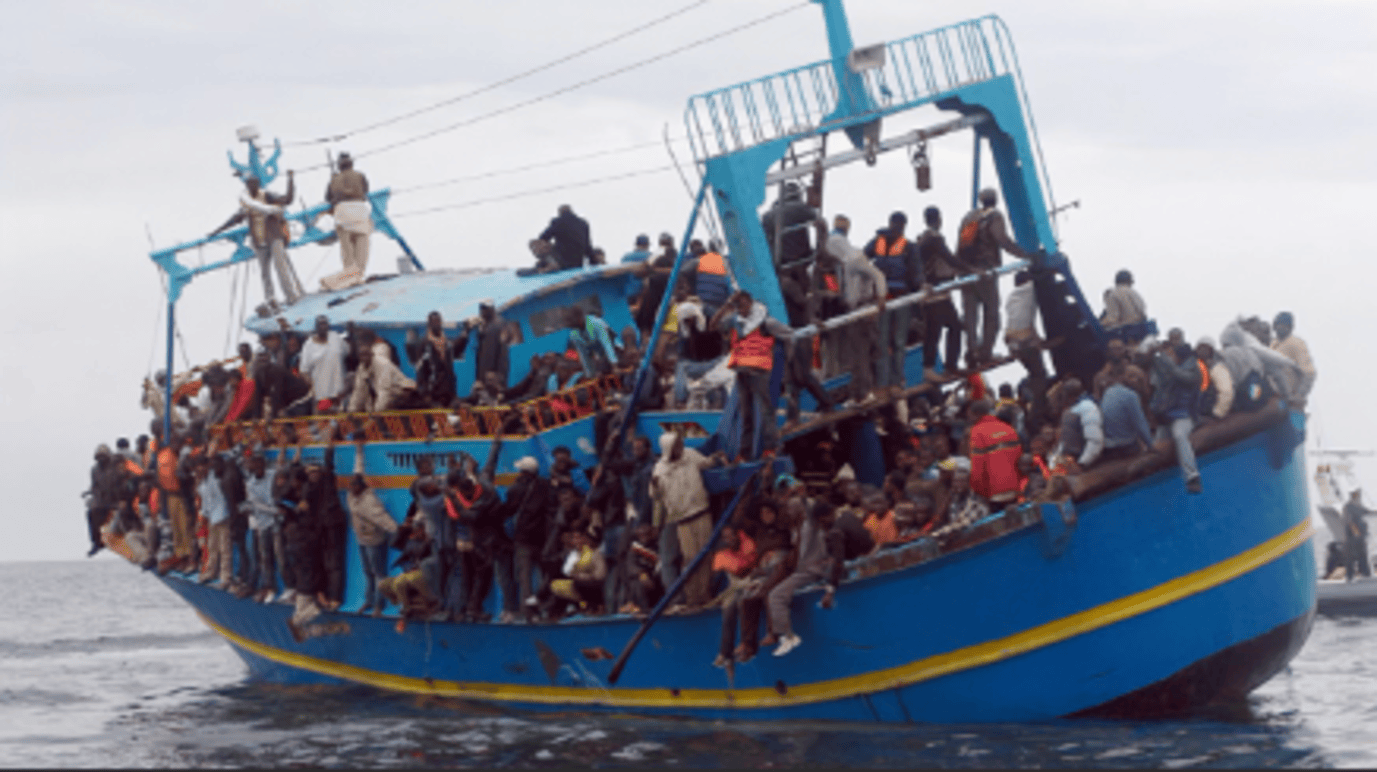The Italian coastguard is facing serious allegations of “multiple manslaughter” after its delayed response to a migrant shipwreck off the coast of Lampedusa, a small island in the Mediterranean that has become a key arrival point for migrants attempting to cross from North Africa. Sea-Watch, a prominent German-based NGO, has accused the Italian coastguard of failing to act swiftly, leading to the deaths of 21 migrants aboard a vessel that capsized while trying to reach Italian shores.
The tragedy has sparked outrage and raised significant questions about Italy’s response to the ongoing migrant crisis, as well as its commitment to humanitarian obligations under international law. The event has also brought attention to the broader issue of search and rescue operations in the Mediterranean, where thousands of migrants continue to risk their lives in overcrowded, unseaworthy vessels.
The Incident: Timeline of Events
The incident occurred in the early hours of November 6, 2024, when a migrant boat, reportedly overcrowded with at least 40 people, capsized while trying to reach the coast of Lampedusa. According to Sea-Watch, the shipwreck occurred around 13 nautical miles off the island’s coast. The survivors, many of whom were women and children, managed to make it to the shores of Lampedusa, where they were rescued by local authorities. However, 21 bodies were recovered, and it is feared that many others may have drowned or succumbed to the harsh conditions in the Mediterranean.
The controversy erupted when Sea-Watch, which had been conducting its own rescue operations in the area, claimed that the Italian coastguard had been aware of the distress signal from the boat for several hours but failed to respond in a timely manner. The group alleges that, despite being in close proximity, the coastguard did not initiate a search-and-rescue operation immediately, leading to the unnecessary loss of life.
According to Sea-Watch, after receiving the distress signal, the coastguard reportedly took several hours to launch a response. During this time, the boat drifted further into increasingly dangerous waters. By the time help arrived, the boat had capsized, and the majority of its passengers had either drowned or were at risk of death from exposure.
Accusations of Inaction: The Sea-Watch Report
Sea-Watch’s accusations against the Italian coastguard are based on data and communications it claims to have gathered, including radio transcripts and reports from survivors. The NGO has stated that it alerted both the Italian coastguard and other European Union maritime authorities to the distress call as soon as it received information about the boat in trouble.
The organisation asserts that the coastguard’s delayed action violated both international maritime law and the principle of rescue at sea, which dictates that any ship or aircraft that receives a distress call must take immediate action to provide assistance. Under both international law, particularly the United Nations Convention on the Law of the Sea (UNCLOS), and EU regulations, the failure to respond promptly to distress calls could be considered negligence or even criminal in certain circumstances.
The report further claims that despite the Italian coastguard’s proximity to the site, the rescue operation was poorly coordinated, leading to a loss of precious time and making it more difficult to save the passengers.
Response from the Italian Authorities
The allegations have sparked a response from Italian authorities, who have denied the accusations of negligence. The Italian Ministry of Defence issued a statement defending the coastguard’s actions, arguing that the response was appropriate under the circumstances. According to the ministry, the shipwreck occurred in international waters, and coordination between the coastguard and other EU agencies, including Frontex, had been delayed due to the complexity of the situation and the weather conditions.
In a statement, the Italian coastguard confirmed that it had been notified of the shipwreck, but added that the situation had been complicated by the lack of accurate GPS coordinates for the boat’s location. They emphasized that rescue operations in the Mediterranean are often fraught with difficulty, especially in waters where migrant vessels frequently turn off their location trackers or fail to communicate their exact position.
Despite this, Italian prosecutors have opened an investigation into the deaths, and officials have said they are reviewing the conduct of the coastguard and other maritime authorities involved in the rescue operations.
The Broader Context: Ongoing Migrant Crisis in the Mediterranean
This incident comes amid a growing humanitarian crisis in the Mediterranean, as more migrants attempt to cross from North Africa to Europe in the hope of finding better opportunities. The central Mediterranean route, which runs between Libya and Italy, remains one of the most dangerous migration routes in the world.
In 2024, over 1,500 people are estimated to have died while attempting the perilous crossing. The deaths are often attributed to overcrowding, poor boat conditions, and inadequate search-and-rescue operations. Despite the European Union’s efforts to bolster border security and improve Frontex-led operations, migrant deaths continue to mount, drawing international condemnation from humanitarian groups and raising urgent questions about the EU’s commitment to human rights and the duty to rescue those in distress.
As European countries, including Italy, face increasing pressure to curb irregular migration, the balance between enforcing border security and fulfilling international obligations to protect vulnerable migrants is a subject of heated debate. Human rights groups have repeatedly called for the EU to strengthen its search-and-rescue operations and provide safe and legal pathways for migrants, rather than leaving them to risk their lives in the hands of smugglers and human traffickers.
Legal and Humanitarian Consequences
The accusations against the Italian coastguard and the deaths of 21 migrants could lead to significant legal and humanitarian consequences for both Italy and the wider European Union. If proven that the coastguard acted negligently or failed to uphold its duties under international maritime law, the Italian government could face scrutiny from international bodies such as the European Court of Human Rights or the International Criminal Court.
For now, the incident underscores the ongoing risks faced by migrants crossing the Mediterranean, the limitations of current EU policies on migration, and the urgent need for comprehensive reforms to ensure better protection for those at sea.
Conclusion
The tragic shipwreck off Lampedusa has once again placed the spotlight on the perilous conditions facing migrants attempting to reach Europe, as well as the responsibilities of European states to uphold international law and respond to distress calls in a timely and effective manner. The allegations against the Italian coastguard raise critical questions about the coordination and urgency of rescue operations in the Mediterranean, while highlighting the broader failings of EU migration policy in addressing the ongoing humanitarian crisis.
As investigations continue, the tragedy serves as a stark reminder of the need for greater accountability and reform in the EU’s approach to migration and search-and-rescue operations in the Mediterranean.
References:
- Sea-Watch – “Italy Coast Guard Accused of Delayed Response to Migrant Shipwreck” Sea-Watch, November 2024
- BBC News – “Italy Defends Coastguard After Migrant Deaths in Lampedusa Shipwreck” BBC News, November 2024
- United Nations Refugee Agency (UNHCR) – “Mediterranean Migration Routes Remain Deadly” UNHCR, 2024
- Frontex – “Frontex’s Role in Mediterranean Search-and-Rescue Operations” Frontex



